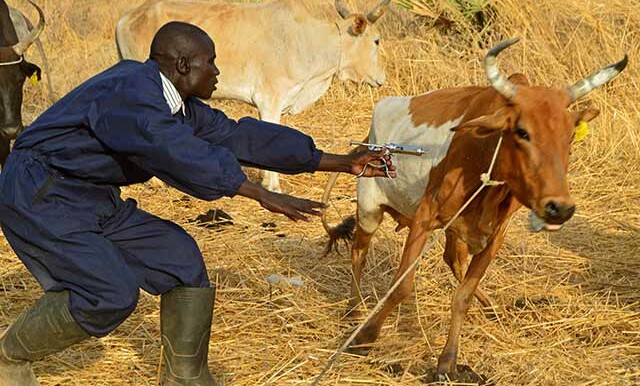A two-day veterinary workshop that drew about 30 community-based animal health workers in Lakes State has ended.
The training was organized by the UN Food and Agriculture Organization (FAO) and the United Nations Educational, Scientific and Cultural Organization (UNESCO) under the theme “Enhanced knowledge education for resilient pastoral livelihood in South Sudan.”
FAO's head of field office in Rumbek, Jasper Okodi said targeted community animal workers from Yirol, Rumbek, and Cueibet County were trained to provide basic veterinary services in the area including animal vaccinations.
“The aim is to contribute to protecting the vulnerable population affected by the ongoing crisis of livestock diseases, hunger, malnutrition, and destitution. The target group includes pastoralist communities in five counties in Lakes and Terekera County of Central Equatoria State,” said Okodi.
He said the participants were brought from 12 cattle camps in Lakes state adding that the main challenge for pastoralists in the cattle camps is livestock diseases like trypanosomiasis, liver fluke, brucellosis, lumpy skin diseases, and black quarter disease.
The minister of agriculture, environment, and forestry, who is also the caretaker minister in the ministry of animal resources fisheries and tourism in Lakes State Poth Majak Daljang urged animal health partners to continue empowering the pastoralists
“It is a very crucial project which gives knowledge to the veterinary doctors to keep our livestock healthy, clean and fit for every kind of consumption when they are kept for the medical treatment of the animals. It means that the animals can have better production of the clean and healthy milk, healthy meat, and other animal products consumed by the community,” said Majak.
He urges trainees to use their skills to support the pastoralist communities.
"The community animal health workers take up their roles to the county, payam, and boma level which are under their control to deliver the services to the people with their livestock. It helps progress in economic development, human development, and social development as well.” Majak said.
The Director-General in the ministry of animal resources Gabriel Makuach Aggrey called on partners to intensify such training within the communities.
He further revealed that the trainees will soon receive veterinary drug kits for the cattle camps and urged them not to overprice the drugs.




